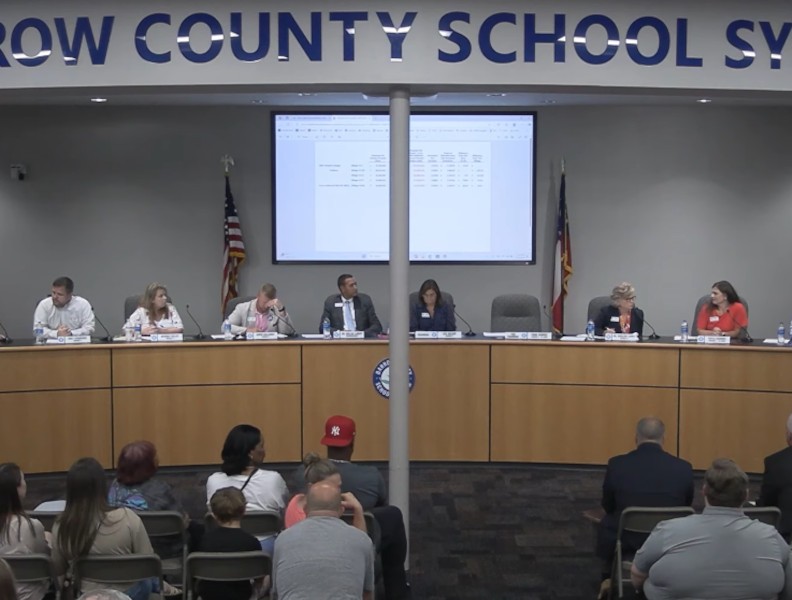The Barrow County Board of Education will cover 100% of the costs for school resource officers (SROs) beginning in the 2025-2026 school year.
The meeting happened on Thursday after it was reported in June that the Barrow County Government would withdraw funding for 12 of its 24 SRO positions within the school system.
A letter to Superintendent Dr. Dallas Leduff from county manager Srikanth Yamala on May 25 of this year said that beginning on July 1 of this year, the school system would be responsible in-full for all costs associated with the new SROs in addition to its share of the split cost for the original 12 officers.
Barrow County Public Information Officer Brian Stewart explained the reason for the change.
“With the approval by voters of a school tax exemption for senior citizens in Barrow County, it is imperative that Barrow County Government ensure that no county general fund dollars — for which there is no senior exemption — are dedicated to areas that would otherwise be funded by school taxes and the associated millage rate,” Stewart said in a statement. “The Barrow County Board of Commissioners is committed to providing effective and efficient emergency services countywide while maintaining the careful balance of appropriately allocating citizens’ tax dollars for the betterment of every Barrow County citizen.”
Now, the board of education said in its Thursday meeting that they would fund all 24 positions.
The key issue was a senior exemption approved last November where seniors do not pay any school taxes.
“The first senior property tax exemption was in 1998,” Barrow County Tax Commissioner Jessica Garrett said at the meeting.
The exemption approved in November was described in the meeting as a correction due to increasing property values.
Since the first senior exemption nearly 30 years ago, the school system and government in Barrow County has historically split the cost.
District 6 board member Darlene Carey questioned Barrow County Assistant Superintendent Support Services Dr. James Bowen about what a fair compromise might look like.
“In your research of other school systems that are similar to ours , can you please let us know what you believe is a fair compromise monetarily that this board can do or send to the board of commissioners so that our community can continue to heal and become more united,” Carey said.
Bowen said 70 to 80% is “fairly normal.”
Salary and benefits are direct costs, but there are also indirect costs associated with SROs.
“Indirect costs would be head to toe … equipment, cars, guns, licenses, training, all the extra gas, fuel, you name it,” Barrow County Sheriff Jud Smith said at the meeting.
Smith also talked about the first intergovernmental agreement between the school system and the county government.
“My mom was the first SRO in this community in 1997,” Smith said. “In the past, the SRO budget … was funded out of the sheriff’s office side. This is the first year that I was asked prior to our budget to separate the direct and indirect costs for SROs.”
The board of education approved a motion to pay 100% of the direct costs for 24 and any future SROs, and would like more discussion on the indirect costs related to the program.
“You are more than reasonable to make that offer, in my opinion,” Smith said to the board of education.
The direct costs would come out to roughly $2-million for the board of education to cover.
Despite this cost, the board of education also voted to lower the millage rate to the rollback number for fiscal year 2026 of 15.193 mills, down from 15.5 last year.

http://accesswdun.com/article/2025/7/1294864/barrow-co-board-of-education-votes-to-pay-for-100-of-sros-rolls-back-millage-rate
